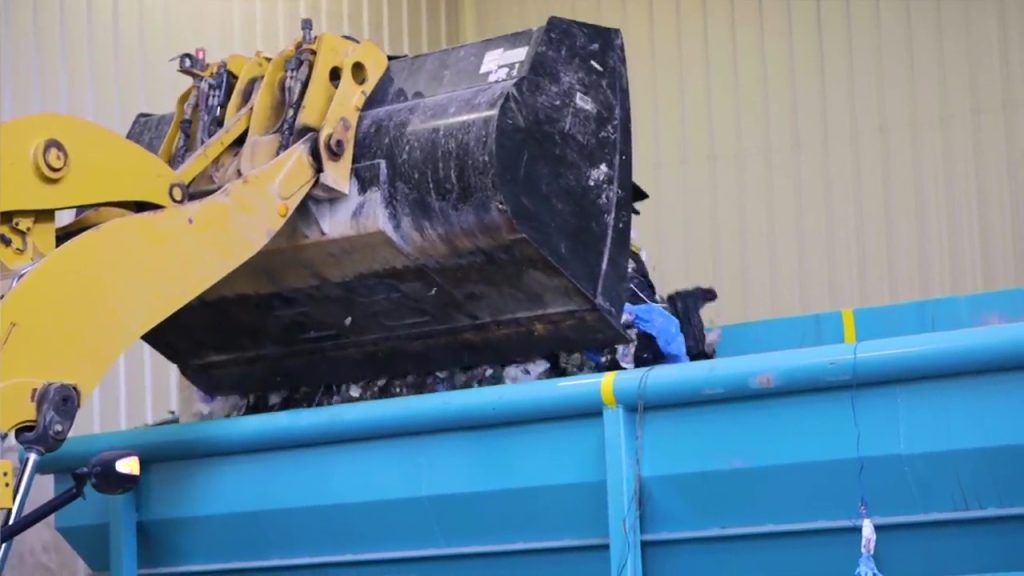The County of Wetaskiwin will soon have a new waste processing method. It's a Canadian solution that uses steam to break down trash and prevent it from going to the landfill.
It's the creation of Sustane Technologies Inc., a company from Nova Scotia.
“We undo the paper and packaging, turn it back into small fibers and shrink the plastic into small hard pieces. This allows us to sort them in different ways, completely automatically,” explained Peter Vinall, CEO of Sustane Technologies Inc.
“This technology can recirculate about 90 per cent of what would now go into a landfill or be burned in an incinerator.”
Each tonne of waste processed reduces greenhouse gas emissions by two to three tonnes.

View image in full screen
Courtesy: Sustane Technologies Inc.
The landfills currently used by the county in central Alberta are approaching the end of their lifespan.
“Our residents have requested recycling solutions, but often it consumes a lot of water, gets rejected at the end site due to being too dirty, and is not an economical process,” explained Reeve Josh Bishop.
“Landfills are not long-term solutions, they present long-term problems in terms of our debt and the 100-year lifecycle after they are capped before reclamation can occur,” Bishop said.
Bishop stated that the county has been seeking a solution for several years.
The question was how the county could form a cost-effective partnership that would benefit ratepayers and the local population.
The municipality ultimately selected Sustane Technologies.
“Their fees are actually competitive with landfill rates, so it's a win-win situation,” noted Bishop. “This sets Sustane apart from the competition.”
The process retrieves nonrenewable resources instead of losing them to a landfill indefinitely.
“Especially when you consider plastics and diesel, we don’t produce more of that, so we need to preserve and recycle what we do have,” Bishop said.
Sustane has obtained approval from the Canada Food Inspection Agency to utilize the biomass output of their process as a fertilizer and even convert plastic back into oil.
“This oil can be used for energy, but more importantly, it can be used to make more plastic, right? To create a circular system for end-of-life plastic and conserve our valuable fossil fuel resources,” Vinall explained.

View image in full screen
Courtesy: Sustane Technologies Inc.
Even the trucks transporting waste to the facility will be able to run on the diesel produced from it, according to Bishop.
Once constructed, the facility will create about 30 skilled jobs in the region.
“These will be engineering positions, and there will also be some lower-level roles, but it's a good economic boost for the region,” Bishop mentioned.
“(This facility) will extend the life of every single landfill in the area.”
They are even considering mining the current landfills.
“That's where we're heading; technologies like Sustane’s will ultimately lead us to a point where waste is seen as a resource,” Vinall stated.
“There are upcoming regulations from the province regarding extended producer responsibility, where they are trying to compel manufacturers and end-users to recycle this material in some way. This solution addresses all of that. This should definitely be a focus for the province as it would solve many plastic issues,” suggested Bishop.



